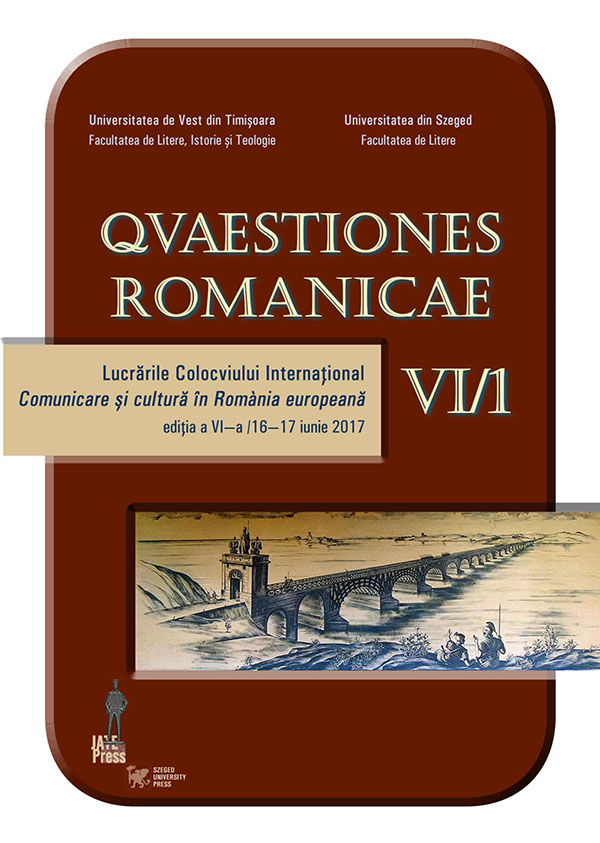Impressioni e perplessità sul canone: il caso Leopardi
Abstract: (Impressions and Perplexities Regarding the Canon: the Leopardi case) The debate regarding the canon, reborn during the ninth decade of the past century mainly due to Harold Bloom’s The Western Canon, more than establishing a present canon, it rather set off a crisis of values, mostly of the criteria according to which values could be hierarchized inside the wide phenomenon of contemporary culture. My paper having as starting point this kind of questions of the present, aims to look for answers in the past, more precisely, in what seems to have been the canon of Giacomo Leopardi, the great italian poet and philosopher of the XIXth century, a person of huge culture. In his vast work Leopardi never mentioned his canon explicitly, that is, he did not make a value judgements scale with the authors he had prefered. Nevertheless, his notes in his famous notebook, Zibaldone, the echoes of other writers in his works, the selection he made for the two Italian literature anthologies that he published, altogether offer various reflections upon what I would call, in his case, the assumed canon and the efficient canon, respectively. Mainly based on the two anthologies he created, my analysis of these two possible aspects of Leopardi’s canon means, on one hand, to better evince his work system within the literary heritage, and on the other hand, to stir quite a lot of questions with regards to the hierarchies Leopardi proposed to his contemporary readers, and hence regarding his very concept of canon.
Keywords: canon, Leopardi, Crestomazie, anthologies, model.
Riassunto: La rinascita del dibattito sul canone, dovuta in gran parte al libro di Harold Bloom Il canone occidentale, ha portato non tanto a definire un canone contemporaneo quanto ad evidenziare una crisi culturale, ossia la mancanza di criteri per stabilire una gerarchia valorica e l’inconsistenza di tale gerarchia nell’ambito della cultura odierna. Il mio intervento, partendo da domande presenti, si propone di cercare delle risposte nel passato, più precisamente in un possibile canone del poeta filosofo di due secoli fa Giacomo Leopardi, intellettuale di sterminate letture e di infiniti commenti a quelle. Leopardi non esprime mai una precisa gerarchizzazione dei suoi autori preferiti, ma le folte annotazioni dello Zibaldone, gli echi nelle sue opere di altri autori, la selezione dei testi per le sue due antologie di letteratura italiana offrono sufficienti spunti per analizzare quello che, nel suo caso, io chiamo il “canone assunto” e il “canone efficiente”. La mia analisi, centrata soprattutto sulle due antologie italiane, si propone, da una parte, di chiarire meglio il metodo leopardiano di lavoro dentro il patrimonio letterario, dall’altra, di destare non poche domande sulle gerarchie proposte dal Nostro ai suoi contemporanei e, da lì, sul suo stesso concetto di canone
Parole-chiave: canone, Leopardi, Crestomazie, antologie, modello.
